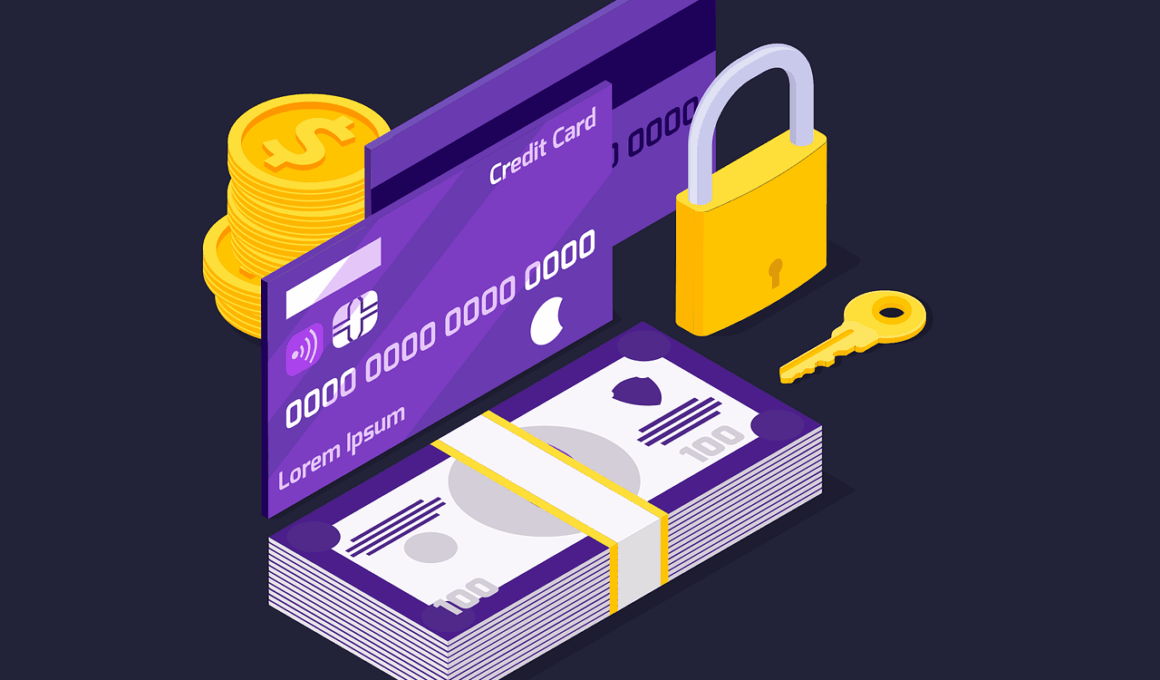The Basics of Storing Digital Currency Securely
Storing digital currency safely is crucial for safeguarding your investments. With the increasing popularity of cryptocurrencies, it is essential to understand how to protect your assets. The digital currency landscape can be daunting, particularly for newcomers. By implementing a few best practices, you can ensure your funds remain secure. Start by researching various storage options and selecting one that fits your needs. This may involve using hardware wallets, software wallets, or even paper wallets. Each type has its advantages and disadvantages. Hardware wallets, for instance, are less vulnerable to hacks compared to online options. Meanwhile, software wallets provide a convenient method of accessing your funds. When you choose a wallet, look for features such as encryption, user control over private keys, and backup options. It’s vital to keep your wallet software up to date to prevent vulnerabilities. Many wallets require you to verify transactions, which adds an extra layer of security. Overall, combining multiple storage solutions can enhance your digital currency security and peace of mind. Remember, your wallet is the key to your investment, so protecting it should be your top priority.
It’s critical to implement effective security measures when storing digital currency. One common approach is enabling two-factor authentication (2FA) on your wallet. This adds an additional layer of security, requiring you to provide two forms of verification before accessing your funds. You can also use strong and unique passwords to enhance the security of your accounts. Additionally, educate yourself about phishing attacks, which often target cryptocurrency holders. Ensure you never disclose your private keys to anyone, as they grant full access to your funds. It’s also wise to enable recovery features on your wallet in case it becomes compromised. Regularly check transaction histories to identify any unauthorized activities promptly. Furthermore, consider diversifying the locations where you store your digital currency. By spreading your assets across multiple wallets or exchanges, you reduce the risk of losing everything in the event of a hack. Always remember the golden rule: if it sounds too good to be true, it probably is. Being cautious and doing thorough research will ultimately pay off in the long run.
As you delve into the world of digital currency, consider the security of your private keys paramount. Your private keys are the only way to access the cryptocurrencies stored in your wallet. Losing them can lead to irreversible losses, so keep them secure. One effective method is to store private keys offline in a hardware wallet or a secure offline location. Avoid keeping them on your computer or mobile device, as they may be vulnerable to malware and hacking attempts. Backup your wallet regularly and store backups in multiple secure locations. Using encryption methods can also help protect sensitive information related to your keys and passwords. Be wary of using public Wi-Fi networks when accessing your digital wallets, as they can be susceptible to attacks. Additionally, if you plan on trading or exchanging currency, use reputable platforms that prioritize security. Look for platforms that offer insurance options to cover potential losses due to hacks. It’s also advisable to read reviews and verify the platform’s credibility. Ultimately, understanding the risks involved will empower you to make informed decisions, ensuring your investments remain intact.
Choosing the Right Storage Options
When it comes to storing digital currency, selecting the right storage option is vital for your security. Digital currency storage methods can be broadly categorized into hot and cold wallets. Hot wallets are connected to the internet and allow for easy access but often expose you to online threats. Cold wallets, on the other hand, remain offline and significantly reduce the risks of hacking. Examples of cold wallets include hardware wallets like Trezor or Ledger. They are considered one of the safest options, providing excellent security features. Users retain full control over their private keys, making it less likely that hackers will access their funds. For those who prefer hot wallets for ease of access, it’s important to choose a trustworthy and reputable service. Look for wallets that offer robust security features such as 2FA, biometric authentication, and encryption. Always do thorough research before committing to a wallet service. Also, stay informed about the latest security updates and patches. Take your time to evaluate and assess the security profile of your potential storage options to ensure optimal safety.
Another important aspect of securely storing digital currency is the practice of keeping backups. In the event of a lost or damaged device, you should have access to your digital currency. Create multiple copies of your wallet, and store them in secure places. It’s also advisable to keep both digital and physical backups. Store a physical backup in a safe place like a secure drawer or safe deposit box. Additionally, ensure that you secure digital copies with encryption and a strong password. Regularly testing your backups will ensure you can access your funds when needed. Furthermore, consider discussing your storage plan with trusted family members or friends who can help recover your assets in case of emergencies. Keeping this information private, however, is important, as it could expose you to risks. Remind your trusted contacts about the sensitive nature of your assets and how to access them if necessary. Balancing accessibility and security is crucial when planning backups for your digital currency.
Staying Informed on Security Trends
Cybersecurity is an ever-evolving field, with new threats emerging continually in the digital currency sector. It is vital to stay informed about the latest security trends and methods for storing your digital assets safely. Follow reputable crypto news outlets and forums that provide insights on breaches, scams, and security updates. Engaging in online communities can help you learn about real-world experiences from other digital currency holders. Attending webinars or local meetups can also enhance your knowledge about securing your investments. Always be on the lookout for security patches and updates from your wallet providers and exchanges. Taking timely action in updating your software can prevent potential vulnerabilities. Additionally, consider using security tools to monitor your funds. Some tools offer features like alerts for unusual account activity, so you can quickly respond to potential threats. Use antivirus software on your devices to safeguard against malware that could compromise your wallet. Educating yourself about phishing attacks and socially engineered scams is paramount to ensuring safety. Keeping yourself informed can result in a more secure digital currency experience.
In conclusion, storing digital currency safely requires a proactive approach and informed decision-making. By employing robust security measures and adopting best practices, you can secure your assets against potential threats. Invest time in understanding different storage options and choose those that align with your risk tolerance and needs. Don’t forget to implement effective practices, such as enabling two-factor authentication, using strong passwords, and recognizing phishing attempts. Furthermore, backup your wallets regularly and remain vigilant regarding software updates. Diversifying storage locations can also minimize exposure to risks. As you navigate the digital currency landscape, stay informed and adapt as necessary to the changing environment. Regularly engaging with the cryptocurrency community will enhance your knowledge and provide valuable insights. Lastly, maintaining the privacy of your private keys and backups is essential. Your investments’ security ultimately rests in your hands; taking the necessary steps will help safeguard your digital currency and lay the foundation for a secure financial future.
Digital currency storage is more than just a financial decision; it’s a matter of security and peace of mind. Now that you have learned the fundamental aspects of safeguarding your digital assets, you are better equipped to navigate this ever-changing landscape. Take the time to put these strategies into practice, and remember that security threats will continue to evolve. Embrace these strategies as part of your cryptocurrency journey, and you will find yourself in a more secure position. Whether you are a new investor or a seasoned trader, staying aware of best practices for security will enhance your experience in the digital currency world. By working towards securing your investments, you contribute to the overall stability of the cryptocurrency landscape. Each step you take towards safety impacts not just your portfolio but the larger community as well. By staying engaged with current security practices, you also help nurture a safer environment for all users. As you continue to grow your understanding, keep your focus on maintaining security and developing a long-term plan to protect your digital currency. Enjoy your trading and investing with confidence!


